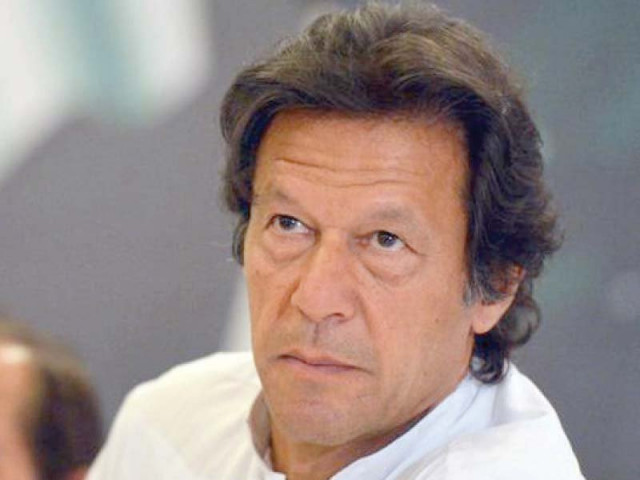Unconstitutional demand? Replies sought from govt, PTI supremo
Demanding prime minister’s resignation is unconstitutional, counsel says

PTI chairman Imran Khan. PHOTO: FILE
Citizen Atif Sattar, through his counsel AK Dogar, said Khan had been delivering provocative speeches against Prime Minister Nawaz Sharif and had been calling for his resignation. This, he said, violated the Constitution. He said demanding the prime minister’s resignation violated Articles 5, 7 and 90 of the Constitution.
Dogar said a full LHC bench had earlier issued a notice to the PTI in connection with its 2014 Azadi March. He said the PTI chairman had asked the prime minister to resign in the wake of the Panama Papers controversy, alleging that he had lost the moral authority to remain in office.
Referring to the verdict on a case involving former premier Benazir Bhutto, Dogar said that the apex court had observed that public order was an elemental need in any organised society and no association could flourish in a state of disorder. In Cantwell versus Connecticut, the counsel said, the United States Supreme Court had observed that “breach of the peace embraces a great variety of conduct destroying or menacing public order and tranquillity. It includes not only violent acts but words likely to produce violence in others. No one would have the hardihood to suggest that the principle of freedom of speech sanctions incitement to riot, when clear and present danger of riot, disorder, interference with traffic upon the public streets, or other immediate threat to public safety, peace, or order appears, the power of the state to prevent or punish is obvious.”
The counsel for the petitioner said a cursory glance at the judgment handed down by the 11-member Supreme Court bench hearing the Benazir Bhutto case would suffice to establish that anyone who stoked danger, rioting, disorder and hampered the smooth flow of traffic had to be restrained. This was something, Dogar said, the state was even empowered to take punitive action against.
The petitioner’s counsel said the federal government was bound by Article-17(2) of the Constitution to declare the establishment of such a political party or its operations prejudicial to national sovereignty and integrity.
He said the federal government had to refer the matter to the Supreme Court within 15 days of such a declaration. Dogar said the apex court’s decision on such a reference would be final. Therefore, he said, no further comment was needed on this aspect of the case lest it compromise other political parties.
The counsel for the petitioner requested the court to direct the federal government to declare that the PTI chairman had been flouting the Constitution in line with the provisions of Article-17(2) read with 90 (1), 95, 5(2) and Oath Under Schedule III of the Constitution. He also requested the court to declare the PTI chairman guilty of inciting hatred, compromising public order and imperilling national sovereignty and integrity. Dogar said the LHC could refer the matter to the Supreme Court of Pakistan for a final verdict.
Judge Waheed sought replies from Khan and the federal government by June 15 after hearing the arguments.
Published in The Express Tribune, June 11th, 2016.



















COMMENTS
Comments are moderated and generally will be posted if they are on-topic and not abusive.
For more information, please see our Comments FAQ